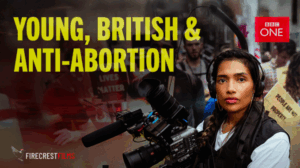
Human traffickers in Southeast Asia have adopted a new and deceptive strategy by posing as religious figures to smuggle individuals across borders, as revealed by recent investigations.
Philippine and Thai authorities have disclosed that these traffickers are using the guise of Christian missionaries to evade airport checks and exploit vulnerable people, especially women.
In a notable case, three Filipino women, aged 23, 25, and 50, were detained at an airport on their way to Singapore via Thailand. Initially claiming to be Catholic missionaries involved in volunteer work, their true intentions were exposed during further examination.
The investigation showed that the oldest woman, who had pretended to be a preacher, was actually running a trafficking ring.
The two younger women were deceived into thinking they were pursuing a teaching opportunity, only to be trafficked for sexual exploitation.
This incident is part of a larger trend involving cross-border criminal groups operating between the Philippines, Thailand, Indonesia, Malaysia, and Cambodia.
These syndicates often employ experienced travelers to guide victims, disguising them as religious delegations to avoid detection.
The Philippine Bureau of Immigration reports that 998 individuals were recognized as trafficking victims in the past year.
These schemes frequently include fake pilgrimages, sham marriages, and surrogate arrangements. Social media has increasingly become a platform to lure individuals with promises of high-paying jobs or romantic relationships, only to trap them in forced labor or sexual exploitation, notably in the “scam cities” of Cambodia, Myanmar, and Thailand.
The Catholic foundation PREDA (People’s Recovery, Empowerment, and Development Assistance), established by Irish missionary Fr Shay Cullen in the Philippines, has been actively bringing these issues to light. The organization has recorded instances of young women being misled by false job offers, trafficked to Myanmar, and subjected to abuse and forced labor in harsh conditions.
Religious groups are responding proactively. The Philippine Interfaith Movement Against Human Trafficking (PIMAHT), which includes Christian, Muslim, and Buddhist leaders, has commended police efforts and reaffirmed their dedication to combat trafficking, especially those involving children and sexual exploitation.
Catholic leaders have strongly criticized the misuse of religious identities in these crimes. Fr Bryand Restituto of the Catholic Bishops’ Conference of the Philippines condemned the “manipulation of religious language and symbols” by traffickers, describing it as “an egregious betrayal of faith and humanity.”
In Thailand, the fight is being championed by religious women like Sister Marie Agnes Buasap of the Hospitaller Sisters of Saint Paul of Chartres. She emphasizes that “Justice begins when truth is exposed and silence is broken,” and spearheads the Talitha Kum Thailand network, a Catholic initiative focused on education and prevention. This network also supports survivors through reintegration and recovery efforts.
Efforts are being made in schools, churches, and advocacy groups to include anti-trafficking education and unveil the tactics used by traffickers.
The reports indicate that traffickers are willing to exploit the trust linked with religious identities to carry out their crimes.
As media coverage, interfaith collaboration, and community education increase, there is optimism that these criminal networks can be dismantled, delivering justice to the victims of trafficking.
This article was originally written by www.christiantoday.com






